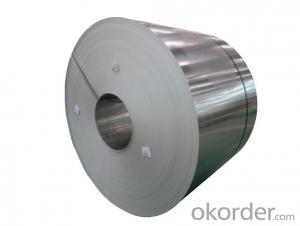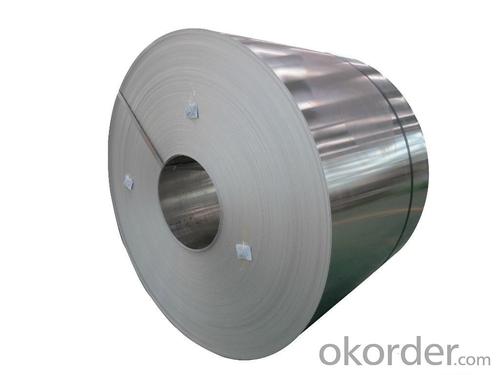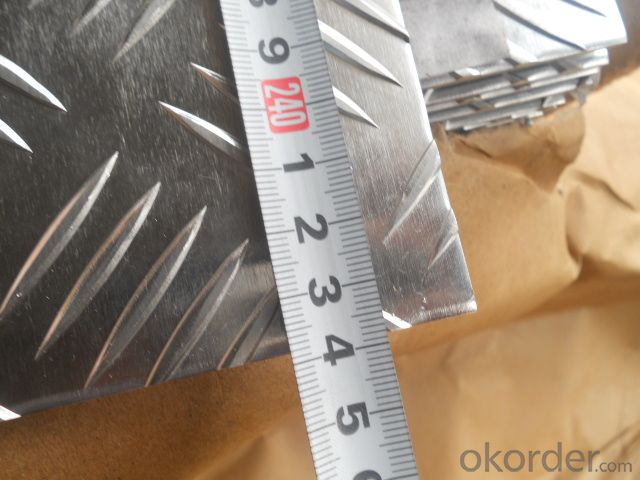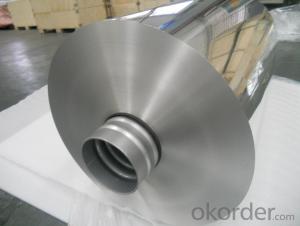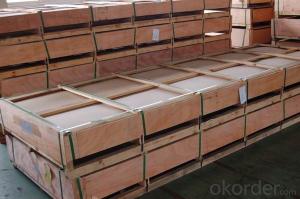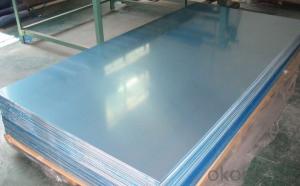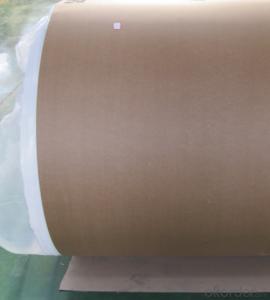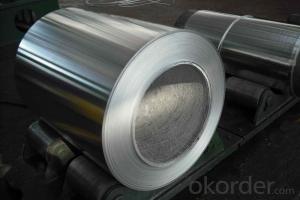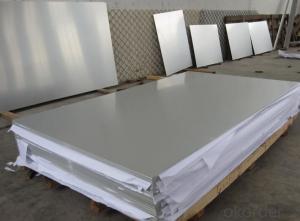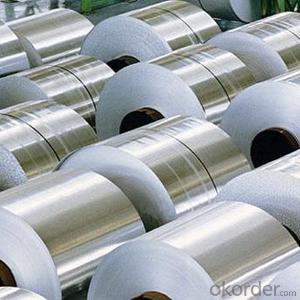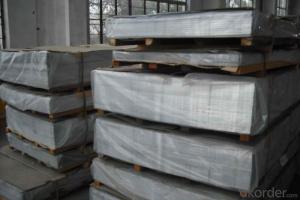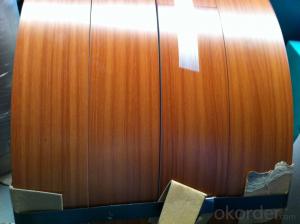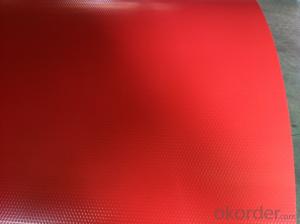032 Aluminum Diamond Plate Sheets for Vessel Building - Mill Finished Aluminum Coils
- Loading Port:
- Shanghai
- Payment Terms:
- TT OR LC
- Min Order Qty:
- 5 m.t.
- Supply Capability:
- 50000 m.t./month
OKorder Service Pledge
OKorder Financial Service
You Might Also Like
Specification
1.Structure of Mill Finished Aluminium Coils for Vessel Building
Mill Finished Aluminium Coils for Vessel Building is one semi-finished aluminium material. This strip can be rolled down to aluminium coil,sheet,circle ect. The alloy AA1050 is widly used in building, industry ect. Its weight is much lower than steel. So many customers choosed aluminium material instead of steel.
2. Main features of Mill Finished Aluminium Coils for Vessel Building
a.Competitive price---We have our own mills and can produce mill finished aluminium coils, so we can control the production cost better.
b.Professional after-sale service---We have more than 15 years exportation experience and you need not worry about the exporation problems.
c.Fast delivery time---We can control the delivery time within 35 days.
3. Image
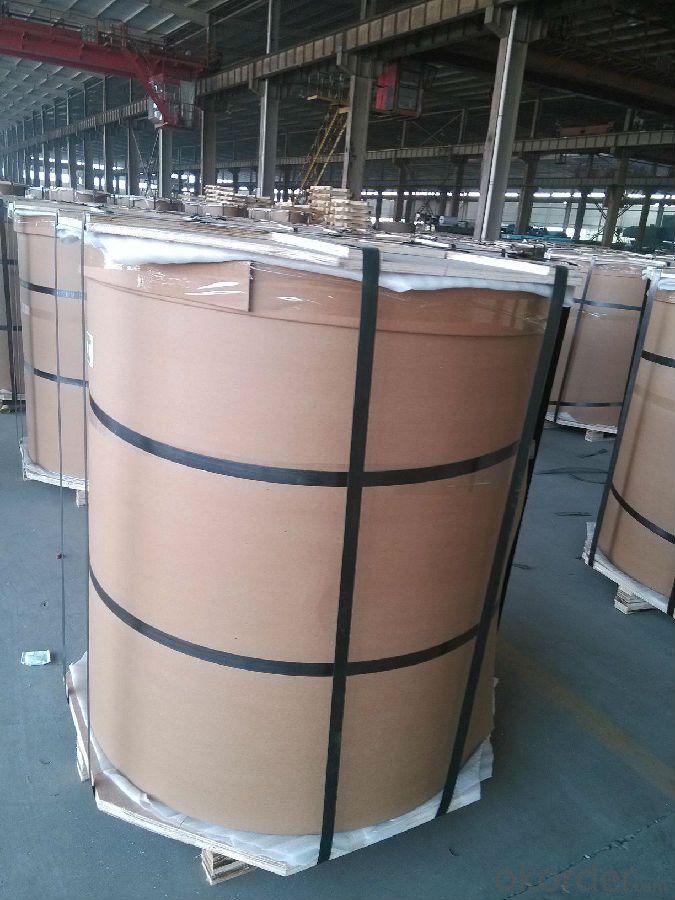
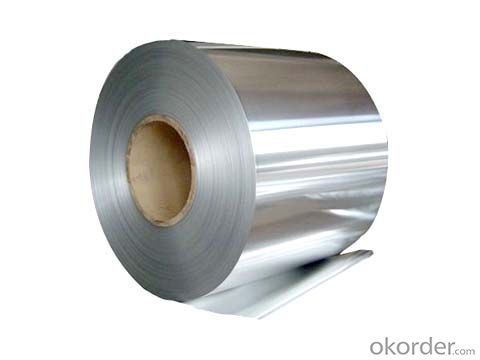
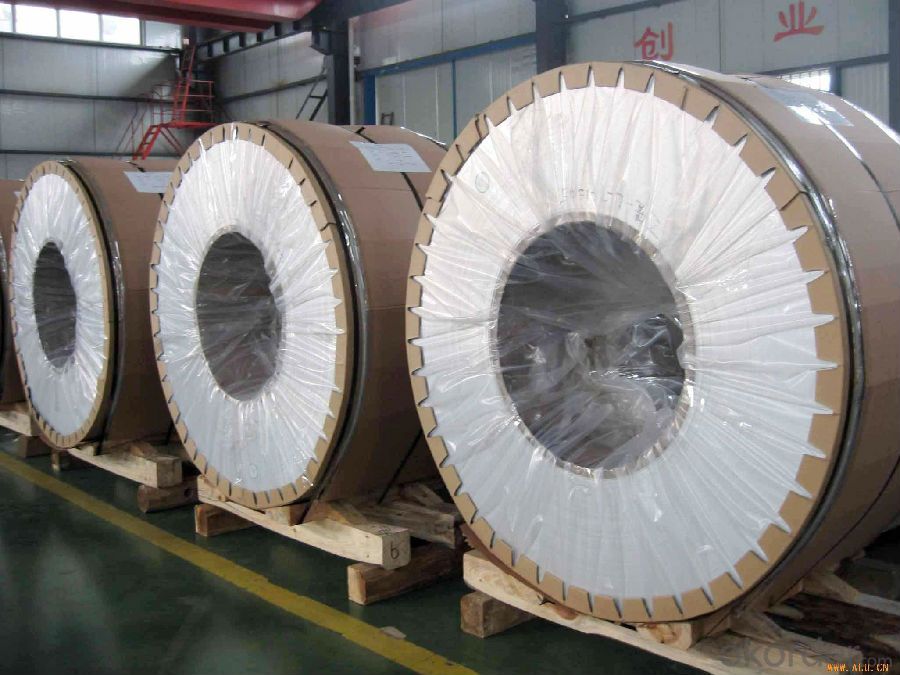
4. Product Specification
| ALLOY | TEMPER | THICKNESS | WIDTH | WEIGHT |
| AA1050 | H15 | 0.2MM-5MM | 1000MM-1500MM | 3TONS |
5.FAQ:
What is the quality standard?
---Usually our standard is GB3880-2006
What is the largest width?
---It is 2300mm
What is the MOQ?
---Usually we can accept 80 tons.
- Q: ... initial temperature of the water or the initial temperature of the aluminum? Why?
- The correct equation is: dQ = m*c*dT As dQ (substitute of thermal potential) and mass are the comparable, the equation may well be rewritten as: c*dT=consistent So a cloth with a decrease specific warmth skill could have a much better improve in temperature. The question has already suggested this yet now all of us be attentive to they are inversely proportional. to that end: c of aluminium/c of copper = dT of aluminium / dT of copper 0.22/0.092 = proportionality consistent = 2.39 So copper would be 2.4 circumstances warmer than aluminium (or aluminium would be 0.40 two circumstances warmer than copper).
- Q: Can aluminum sheets be used for solar panels?
- Solar panels can indeed utilize aluminum sheets. Aluminum is widely employed in the manufacturing of solar panels due to its exceptional properties. Its lightweight nature, durability, and resistance to corrosion make it well-suited for enduring diverse weather conditions. Moreover, aluminum boasts excellent electrical conductivity, a crucial element for efficient energy generation in solar panels. By incorporating aluminum sheets, solar panels can guarantee longevity and optimal performance, all while diminishing the panels' overall weight and cost.
- Q: Are aluminum sheets suitable for water storage applications?
- Yes, aluminum sheets are suitable for water storage applications. Aluminum is a lightweight and durable material that is highly resistant to corrosion and rust. It is also impermeable to light, air, and water, making it an excellent choice for storing water. Additionally, aluminum sheets can be easily formed into various shapes and sizes, allowing for customizable water storage solutions.
- Q: What is the thermal conductivity of aluminum sheets?
- Aluminum sheets exhibit high thermal conductivity, reaching around 237 W/m·K. This quality endows aluminum with exceptional heat conduction capabilities, enabling efficient heat transfer between different regions. Consequently, aluminum sheets find widespread application in various domains, including heat sinks, radiators, and cooking pans.
- Q: Is it possible to utilize aluminum sheets in the construction of environmentally friendly or sustainable buildings?
- <p>Yes, aluminum sheets can be used for green building projects. They are lightweight, strong, and durable, which reduces the amount of material needed and the energy consumed in transportation. Aluminum is also 100% recyclable, meaning it can be repurposed without losing quality, reducing waste and the need for new raw materials. Additionally, aluminum has a high reflectivity, which can help in reducing heat absorption and thus lowering cooling costs in buildings. These properties make aluminum a sustainable choice for green building initiatives.</p>
- Q: What are the standard tolerances for aluminum sheets?
- The standard tolerances for aluminum sheets vary depending on the specific industry and application. However, some commonly accepted tolerances for aluminum sheets include thickness tolerances, flatness tolerances, and width and length tolerances. Thickness tolerances refer to the allowable variation in the thickness of an aluminum sheet. These tolerances can range from +/- 0.005 inches to +/- 0.010 inches, depending on the grade and thickness of the sheet. Flatness tolerances specify the degree of flatness or deviation from a perfectly flat surface that is acceptable for an aluminum sheet. Flatness tolerances can range from a few thousandths of an inch to a few hundredths of an inch, depending on the specific requirements of the application. Width and length tolerances define the allowable variation in the dimensions of an aluminum sheet. These tolerances can be specified in terms of +/- inches or as a percentage of the sheet's width or length. Generally, width and length tolerances for aluminum sheets are in the range of +/- 0.25 to +/- 0.50 inches. It is important to note that these standard tolerances are subject to change and can vary depending on the specific industry, customer requirements, and the capabilities of the manufacturer. Therefore, it is always recommended to consult the manufacturer or industry-specific standards to determine the precise tolerances for aluminum sheets in a particular application.
- Q: What are the different grades of aluminum sheets?
- In the market, a variety of aluminum sheet grades can be found, each having its own unique properties and uses. Some commonly used grades are 3003, 5052, and 6061. Grade 3003, a non-heat treatable alloy, displays high resistance against corrosion. It finds its application in scenarios where corrosion resistance is crucial, such as packaging, cooking utensils, and chemical equipment. Grade 5052, also non-heat treatable, offers exceptional corrosion resistance along with strength and durability. This makes it suitable for marine applications, transportation equipment, and architectural purposes. Grade 6061, a heat treatable alloy, combines good corrosion resistance with high strength. It is extensively used in structural applications like aircraft components, automotive parts, and construction materials. In addition to these grades, there are specialized aluminum alloys like 2024, 7075, and 5083, catering to specific properties required in particular industries or applications. To ensure the right grade of aluminum sheet for your project, it is crucial to consider its specific requirements, as each grade possesses its own strengths and limitations. Seeking advice from a knowledgeable supplier or expert can assist in determining the most suitable grade for your needs.
- Q: Are aluminum sheets suitable for aircraft panels?
- Yes, aluminum sheets are suitable for aircraft panels. Aluminum is a widely used material in the aerospace industry due to its excellent strength-to-weight ratio, corrosion resistance, and formability. It offers durability and structural integrity while keeping the weight of the aircraft relatively low. Aluminum sheets are commonly used for constructing aircraft panels, providing a reliable and efficient solution for aerospace applications.
- Q: What are the aluminum plates for?
- The products are widely used in construction, curtain wall, packaging, food, air conditioners, refrigerators, solar energy, automobile manufacturing, ship manufacturing, machinery manufacturing, cosmetics packaging and other electrical appliances, machinery manufacturing industry, can also be used in power plants, chemical and petrochemical industry factory anticorrosion & insulation etc..Shandong Pingyin Hengshun Aluminium Co., Ltd. specializing in the production of (hot rolling, cold rolling aluminum alloy) roll. Aluminum coil. Alloy aluminum. Aluminum. Ultra wide / ultra thick aluminium alloy. Sawing, shearing customer requirements specification aluminum alloy thick aluminum wire, aluminum, aluminum flange with aluminum, power plant / chemical anticorrosion and insulation alloy factory aluminum moisture-proof aluminum roll roll.
- Q: Are aluminum sheets suitable for decorative paneling?
- Indeed, decorative paneling can be achieved with the use of aluminum sheets. With its versatility and range of benefits, aluminum proves to be a suitable material for such applications. One advantage is its lightweight nature, making it convenient for handling and installation. Consequently, it becomes a practical choice for both interior and exterior paneling. Moreover, aluminum sheets possess durability and resistance to corrosion, allowing them to withstand various weather conditions, including humidity and UV exposure. This outstanding quality ensures that the decorative paneling retains its aesthetic appeal over time, even in high-traffic areas. Additionally, aluminum sheets provide a sleek and contemporary appearance to any space. They can be easily customized with different finishes like brushed, polished, or anodized, offering limitless design possibilities. Furthermore, the reflective properties of aluminum contribute to the overall visual appeal by creating an illusion of more space and light in a room. Furthermore, it is worth noting that aluminum is a sustainable material that can be fully recycled without compromising its quality. This aspect makes it an environmentally friendly choice for decorative paneling, aligning with the growing trend towards sustainable design. Overall, due to their lightweight nature, durability, versatility in design options, and sustainable properties, aluminum sheets prove to be an excellent option for decorative paneling. Whether for residential or commercial purposes, the addition of aluminum paneling can bring a modern and visually appealing touch to any space.
Send your message to us
032 Aluminum Diamond Plate Sheets for Vessel Building - Mill Finished Aluminum Coils
- Loading Port:
- Shanghai
- Payment Terms:
- TT OR LC
- Min Order Qty:
- 5 m.t.
- Supply Capability:
- 50000 m.t./month
OKorder Service Pledge
OKorder Financial Service
Similar products
Hot products
Hot Searches
Related keywords
